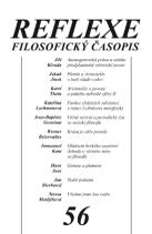The Vagaries of Wesen
The author asks why, in spite of Husserl’s emphasis on clear seeing, his students often tend to a mystical irrationalism. He points out that if we understand Husserl’s key concept, Wesen, as an essence, then the idea of a Wesenschau lends itself directly to a mystical reading. He proposes to understand Wesen as the meaning or the role which an individual accepts in the context of a whole and which makes it a member of a kind. Such a reading resolves the problem of Wesenschau but, within a static conception of reality, exposes us to the danger of psychologism. Thus it demands a dynamic conception of reality-in-motion, which generates needs, and therefore also roles, independently of the will of a particular individual – in that sense a-subjectively. The author does not claim this to be Husserl’s mens auctoris but a direction which Husserl’s further thought might have taken.
Backlinks: Reflexe 32
